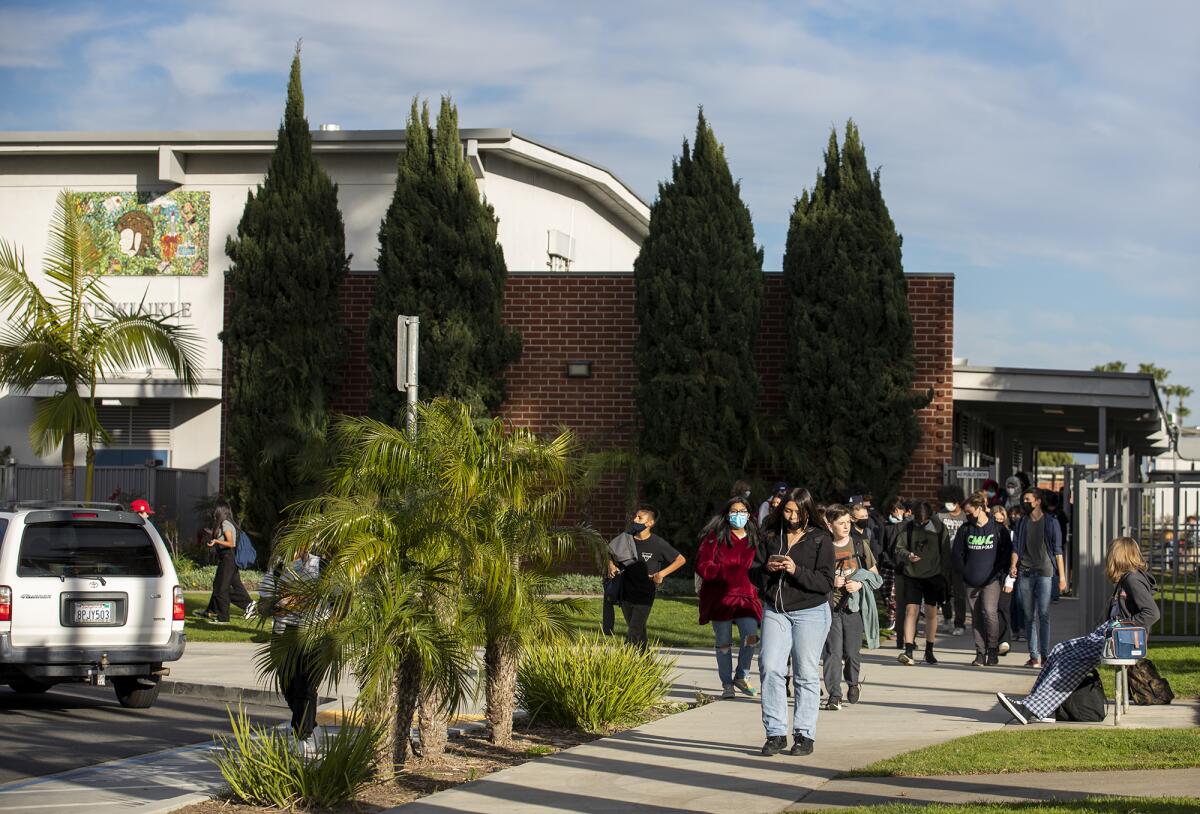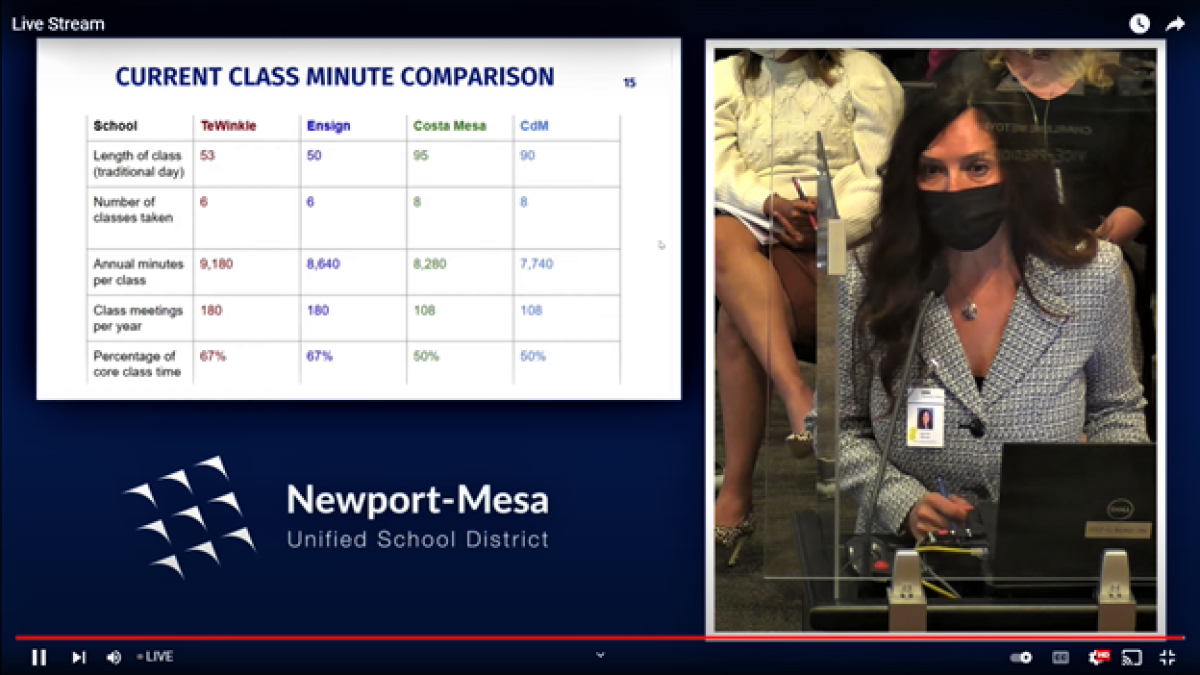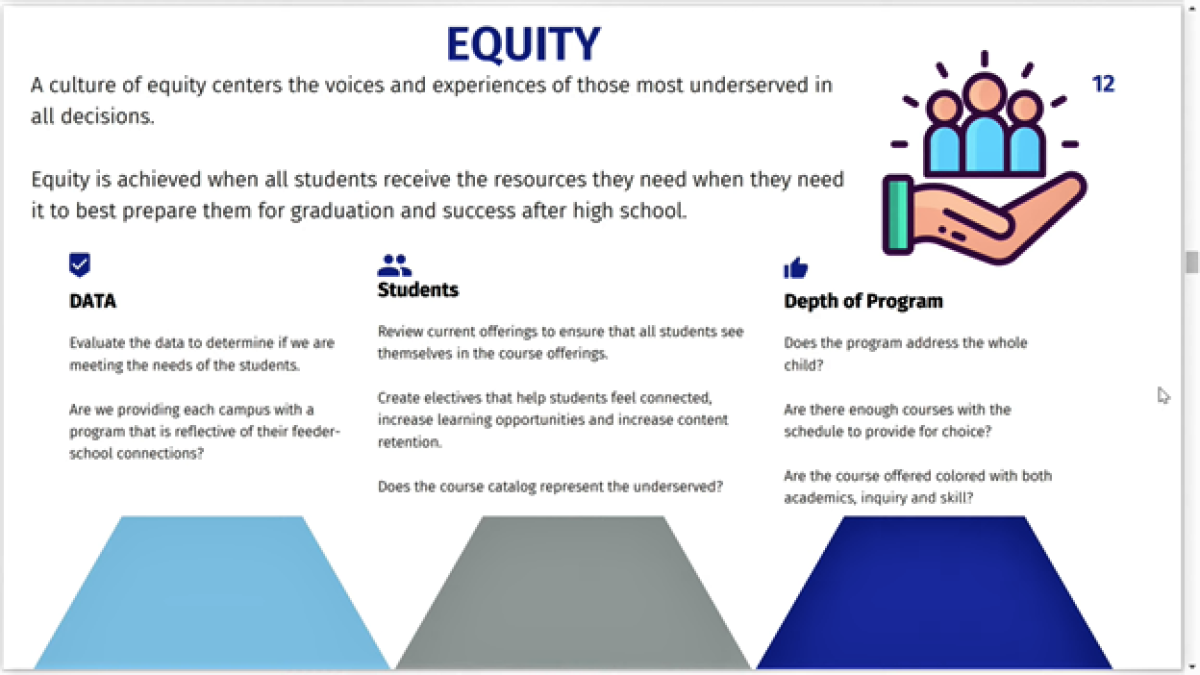Newport-Mesa Unified looks at middle school electives, after parents say inequities exist

Newport-Mesa Unified officials are reexamining elective course offerings at the district’s middle schools after a contingent of parents raised concerns about an inequity of options among campuses.
Parents whose children attend or will attend TeWinkle Middle School — a campus on Costa Mesa’s west side that feeds into Estancia High School — claim a scarcity of elective classes is keeping students from pursuing interests that would more deeply engage them in learning.
TeWinkle currently offers 13 elective courses, compared to 21 at Ensign Intermediate and Corona del Mar Middle schools and 27 at Costa Mesa Middle School. And, because of differing bell schedules that change the way the day is structured, most TeWinkle students have only one elective period, compared to two periods elsewhere.
NMUSD’s board of trustees considered the issues during a special study session Tuesday, during which parents shared their experiences. TeWinkle mom Laura Van de Merghal said she was disappointed last May to learn how limited her seventh-grade daughter’s options would be.
“My daughter loves art and drawing, and she was hoping there would be an art elective. At the time, there was not, so she settled on publications,” she said. “I thought maybe all NMUSD school sites were similar — that was not the case.”

Bridget Duffin, who teaches elementary school music in the district, said her eighth-grade son is taking beginning band for the fifth year in a row to maintain his honors schedule because, unlike other schools, TeWinkle does not offer advanced instrumental ensemble classes.
“My husband and I felt like our son wasted his time this past year and a half by not being able to advance in band,” she said. “While he is happy at TeWinkle, this has been disappointing and frustrating for us.”
At Tewinkle, where approximately 83.4% of the student body is Latino, many students are enrolled in Advancement Via Individual Determination (AVID), an academic support program offered during the school day, or AVID Excel, a class that helps English learners accelerate their language acquisition.
AVID courses are considered electives, a categorization many parents say prevents TeWinkle kids from being able to use their single elective choice on courses aligned to their talents and interests.
“What percentage of TeWinkle students are enrolled in AVID and never take anything else?” asked Michelle Erickson, whose elementary school children are slated to attend the school. “Can AVID skills and teachings [instead] be incorporated into core courses?”

Kerrie Torres, NMUSD’s assistant superintendent of secondary education, explained the district will work with intermediate principals and staff to see where things might shift and flex to possibly allow for more student choice in the years ahead.
Changes, however, might come with tradeoffs, Torres said. For example, TeWinkle students currently attending school on a six-period schedule take fewer classes but get more instructional time within a class, spending roughly 153 hours per class annually, compared to Corona del Mar, where students spend about 129 hours.
Trustees instructed staff to work closely not only with teachers but with parents and students to understand the needs and see how intermediate schools might offer smoother transitions from the elementary level to high school.
Supt. Wesley Smith said Tuesday’s meeting was just one step in a process.
“It’s an important step, it’s an exciting step,” he said. “We have to do more work. [Let’s] continue to do this until we get to that resolution that meets the needs of all students.”
All the latest on Orange County from Orange County.
Get our free TimesOC newsletter.
You may occasionally receive promotional content from the Daily Pilot.




